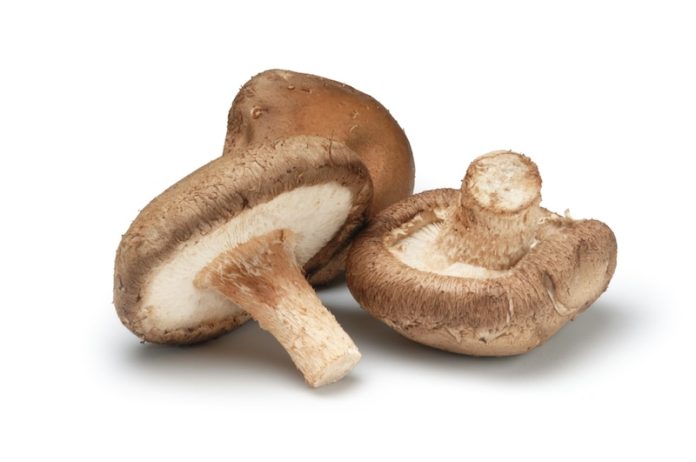
Many people dream of living long, healthy lives, free from age-related illnesses.
However, as we age, the risk of developing conditions like Alzheimer’s disease or sarcopenia—where muscles weaken and shrink—grows significantly.
Scientists around the world are increasingly focusing on ways to extend the portion of life spent in good health, known as the “health span.”
A team of researchers, led by the Leibniz-Institut für Analytische Wissenschaften (ISAS) in Germany, has found that a natural compound called ergothioneine may play a significant role in promoting healthy aging.
Their study, involving international collaborators from Serbia, the UK, France, Italy, and Spain, was published in the journal Cell Metabolism.
Ergothioneine is a naturally occurring substance found in certain mushrooms, such as oyster and shiitake mushrooms, as well as in some fermented foods. It is also available as a dietary supplement and is often marketed as an anti-aging ingredient in cosmetics.
While past research hinted at its ability to protect cells and improve health, scientists did not fully understand how it worked—until now.
Dr. Miloš Filipović, who led the research group at ISAS, explained that their findings reveal not only how ergothioneine works at a molecular level but also its potential to prevent age-related diseases.
Improving Lifespan and Mobility in Animals
The researchers conducted experiments on a variety of animals, including nematodes (tiny worms used as model organisms in science) and rats. They found that ergothioneine had a noticeable impact on extending the lifespan and improving the overall health of these animals.
For instance, worms treated with the compound showed greater mobility, better stress resistance, and fewer signs of aging compared to untreated worms. These benefits became more pronounced as the worms aged, and no harmful side effects were observed.
The researchers also tested ergothioneine on mammals. At the University of Belgrade, scientists gave nine-month-old rats daily doses of the compound for three weeks. This dose was roughly equivalent to the ergothioneine content in 4.5 grams of dried oyster mushrooms.
The treated rats demonstrated increased endurance, improved muscle mass, better blood supply to their muscles, and more muscle stem cells—suggesting that ergothioneine could help prevent conditions like sarcopenia.
How Ergothioneine Works in the Body
To understand why ergothioneine had such positive effects, the researchers studied its impact on cells. They discovered that ergothioneine interacts with a specific enzyme in the body called cystathionine-γ-lyase (CSE).
This enzyme is involved in producing hydrogen sulfide (H₂S), a molecule that protects cells from damage caused by oxidative stress. This protective process, known as persulfidation, tends to decline with age and is linked to diseases like cardiovascular and neurodegenerative disorders.
The study found that ergothioneine could boost persulfidation by acting as an alternative fuel for the enzyme. In particular, it stimulated the activity of another enzyme called glycerol-3-phosphate dehydrogenase (GPDH), which enhances the production of NAD+. NAD+ is a crucial molecule known for its role in energy metabolism and its association with longer lifespans.
Importantly, the human body cannot produce ergothioneine on its own, suggesting that it needs to be obtained from dietary sources, such as mushrooms.
Potential for Human Benefits
Building on these promising findings, the researchers also tested ergothioneine on young rats over a short period of five days. Even within this short time, the rats showed improved endurance and higher NAD+ levels in their blood, suggesting that ergothioneine may function similarly to performance-enhancing supplements.
Dr. Filipović plans to explore these effects further in studies involving healthy human participants. If these trials confirm the benefits observed in animals, ergothioneine could become a valuable tool for promoting healthy aging in people.
Review and Analysis of the Findings
This study highlights the potential of ergothioneine to support healthier aging by improving mobility, endurance, and stress resistance while protecting cells from damage.
Its ability to increase NAD+ levels and enhance cellular protection makes it a particularly promising candidate for addressing age-related conditions. Moreover, the absence of side effects in the animal trials strengthens the case for further research in humans.
The findings also underline the importance of dietary sources of ergothioneine, such as mushrooms, in supporting overall health.
While more studies are needed to confirm its effects in humans, ergothioneine shows potential as a natural way to extend the healthy years of life, helping people stay active and independent as they age.
If you care about wellness, please read studies about how ultra-processed foods and red meat influence your longevity, and why seafood may boost healthy aging.
For more health information, please see recent studies that olive oil may help you live longer, and vitamin D could help lower the risk of autoimmune diseases.
The research findings can be found in Cell Metabolism.
Copyright © 2025 Knowridge Science Report. All rights reserved.



